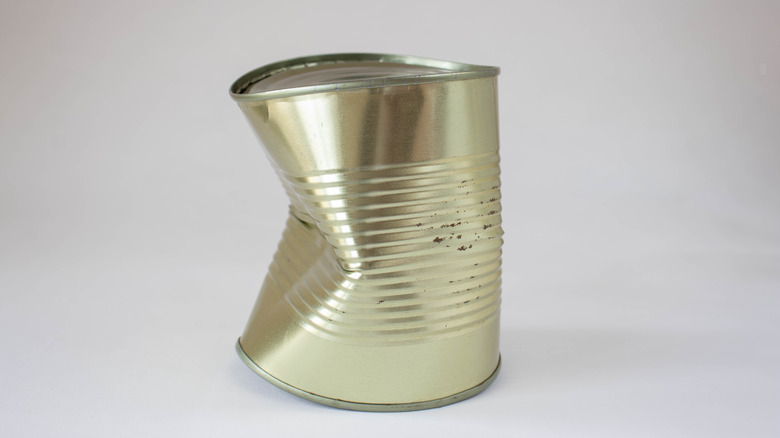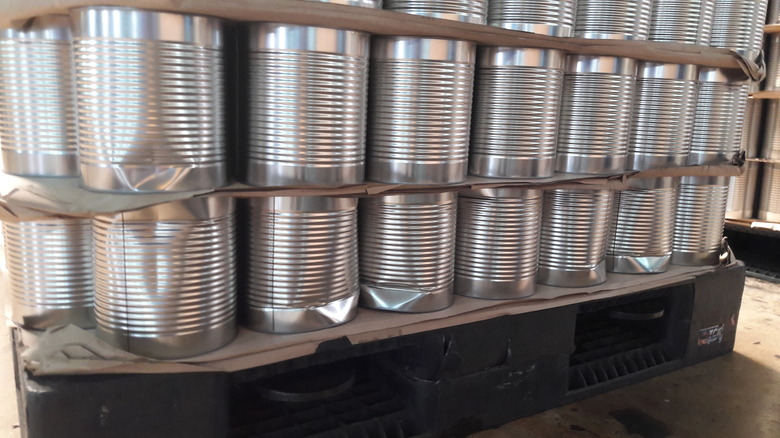Is It Safe To Eat Food From A Dented Can?
Safety when cooking and consuming should always be taken seriously. When it comes to food safety, certain things are taught from the first time we set foot in the kitchen. Making sure to cook meat to a safe temperature by using a meat thermometer and always storing perishable food in the refrigerator are two of the easiest ways to practice food safety. However, there may be other forms of keeping yourself safe in the kitchen that aren't as widely known.
If you've ever been to the grocery store and have visited the soup or canned vegetable aisle, you might have noticed the occasional dented can. Or, perhaps you recall the scene from the 1999 Adam Sandler movie "Big Daddy," where he intentionally dents the cans while grocery shopping to get them at a 50% discount (via moviequotes.com).
While there are plenty of canned food myths you probably fell for and dented cans aren't uncommon, it's important to know the difference between a can that is safe to consume and one that should be thrown away.
It is generally safe to eat food from a dented can
When it comes to dented cans, you should proceed with caution — but generally, the content will still be safe to eat once opened.
According to the Food Safety and Inspection Service of the United States Department of Agriculture, food is safe to eat from a dented can as long as the dent is small. If it's a small dent and the can doesn't have any issues beyond that, you don't have much to worry about in terms of foodborne illness.
However, the USDA classifies a "deep dent" as "one that you can lay your finger into." If a can has a deep dent, you should throw it away. The USDA advises against consuming food from a deeply dented can because of the potential for the edges of those dents to be sharp and cut through the can's seam. Any outside air entering the can will allow bacteria to grow, which poses a risk of foodborne illness. Being aware of this possibility may allow you to avoid food poisoning by proper disposal of potentially contaminated products.

